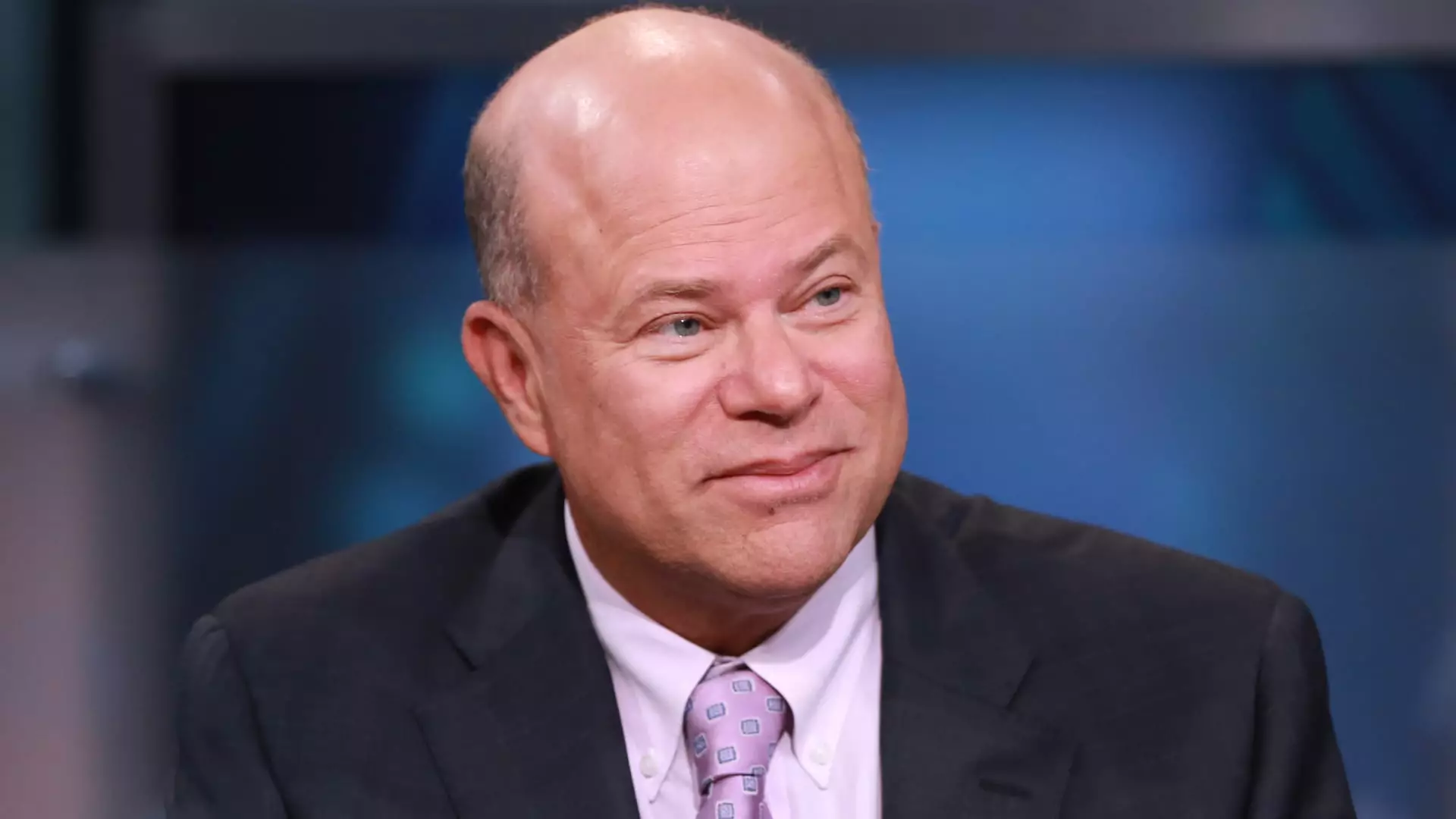David Tepper, a prominent hedge fund manager and owner of the NFL’s Carolina Panthers, recently shared his perspectives on the Federal Reserve’s recent interest rate cuts during an appearance on CNBC’s “Squawk Box.” His remarks shed light on how market participants can interpret the Fed’s strategies, emphasizing the importance of the central bank’s credibility in shaping investor sentiments. Tepper’s analysis highlights a prevailing narrative among some investors: a belief in the Fed’s commitment to maintaining economic stability through credible monetary policy.
The Federal Reserve’s decision last week to lower benchmark interest rates by half a percentage point marked its first easing campaign in four years, signaling a notable shift in monetary policy, despite macroeconomic indicators suggesting a relatively stable economy. Tepper’s assertion that investors should trust the Fed’s intentions underscores the necessity of the central bank to follow through on its promises effectively. Failure to do so could lead to a loss of credibility, a fate that many believe could disrupt market stability.
The Current Economic Environment
Despite the aggressive nature of the Fed’s recent actions, Tepper acknowledges his unease regarding the macroeconomic landscape for U.S. stocks. Drawing parallels to the late 1990s when the Fed similarly cut rates, Tepper cautions against potential “bubble mania,” referencing the collapse of the dot-com market that followed aggressive monetary easing in a strong economy. In his view, the current setup resembles that era too closely for comfort, particularly as consumer spending indicates that gross domestic product (GDP) is tracking significant growth. Yet, this growth alone does not alleviate the concerns regarding systemic risk posed by excessive monetary easing.
Interestingly, while inflation remains a concern—exceeding the Fed’s 2% target—Tepper notes the subtleties of the current economic climate, particularly in the labor market. The Fed’s decision may have been partly motivated by signs of labor market softness; a consideration that influences their recalibrated interest rate strategy. The juxtaposition of robust consumer spending against a backdrop of labor market fluctuations creates a paradox echoing Tepper’s nervous sentiments about the market’s resilience.
Given the complexities of the current economic setup, Tepper maintains a cautious yet strategic posture toward U.S. equities. While he expresses reservations regarding value perspectives in the U.S. market, he opts not to short equities, driven by the logic that a moderate economic landscape coupled with easy money policies could cultivate some upward momentum. His insight resonates with many investors who grapple with balancing caution against the fundamentals of a reasonably healthy economic backdrop.
His inclination to remain exposed to equities, despite concerns over valuations, underscores a crucial lesson for investors: navigating markets requires an understanding of macroeconomic forces and the potential impacts of central bank policies.
Tepper’s investment strategy takes a definitive turn as he openly declares his enthusiasm for Chinese markets, bolstered by recent government support measures aimed at revitalizing its economy. This pivot towards Asian and European equities signifies a notable shift in his investment philosophy, highlighting opportunities perceived as more favorable when juxtaposed against U.S. stocks facing the constraints of overvaluation and aggressive monetary policy intervention.
Such a strategic shift not only reflects Tepper’s confidence in emerging market dynamics but also serves as a reminder of the global interconnectedness of economies. Investors are increasingly urged to look beyond domestic markets to identify value and growth opportunities that may better align with changing economic narratives.
David Tepper’s insights provide a nuanced understanding of the Federal Reserve’s policy decisions and their potential implications for both U.S. and global markets. His analysis underscores the importance of reading between the lines of economic indicators and acknowledging the weight of monetary policy credibility in shaping market trajectories. As investors navigate this landscape, they must remain vigilant and adaptable, recognizing the interplay between macroeconomic conditions and strategic investment choices in an era defined by monetary easing.

